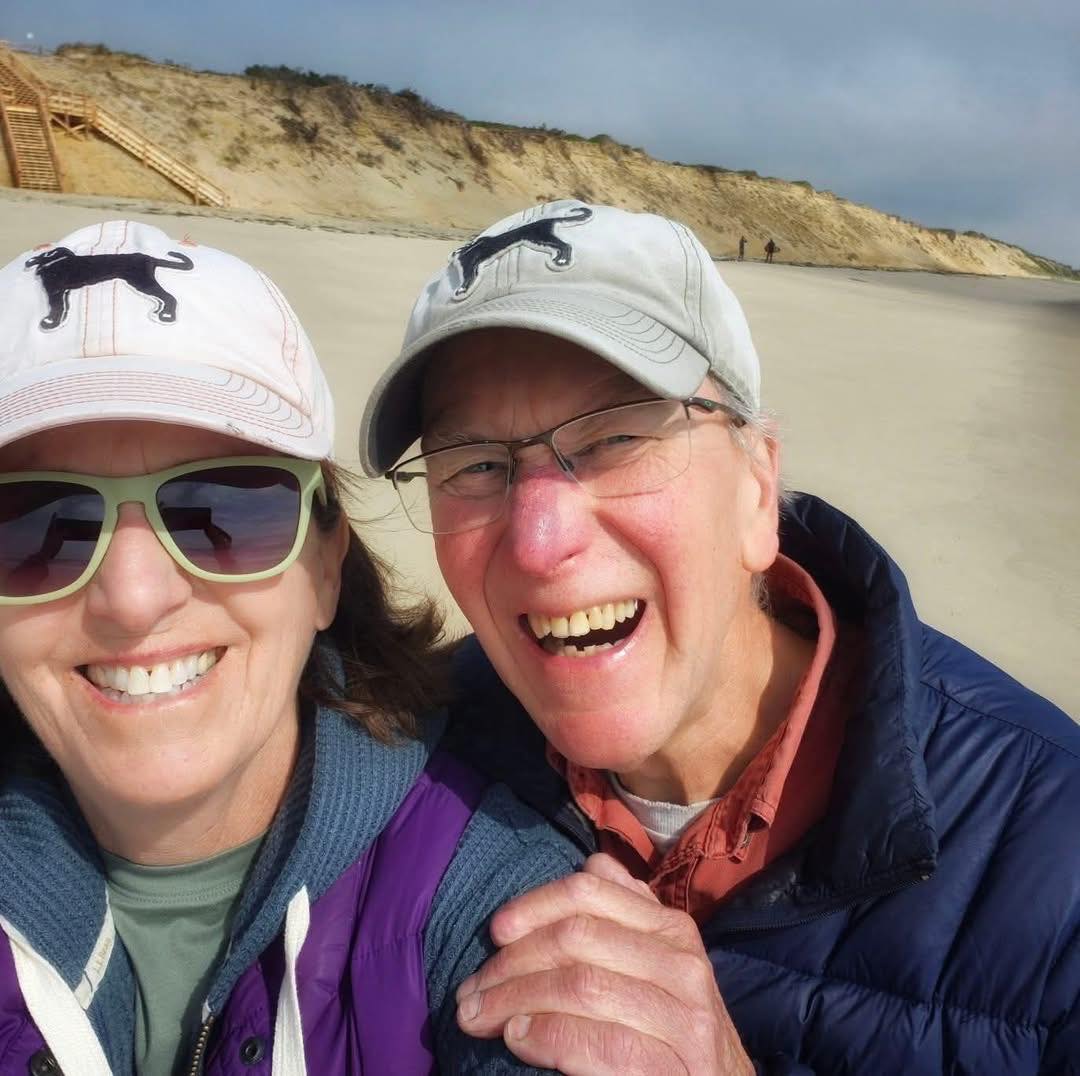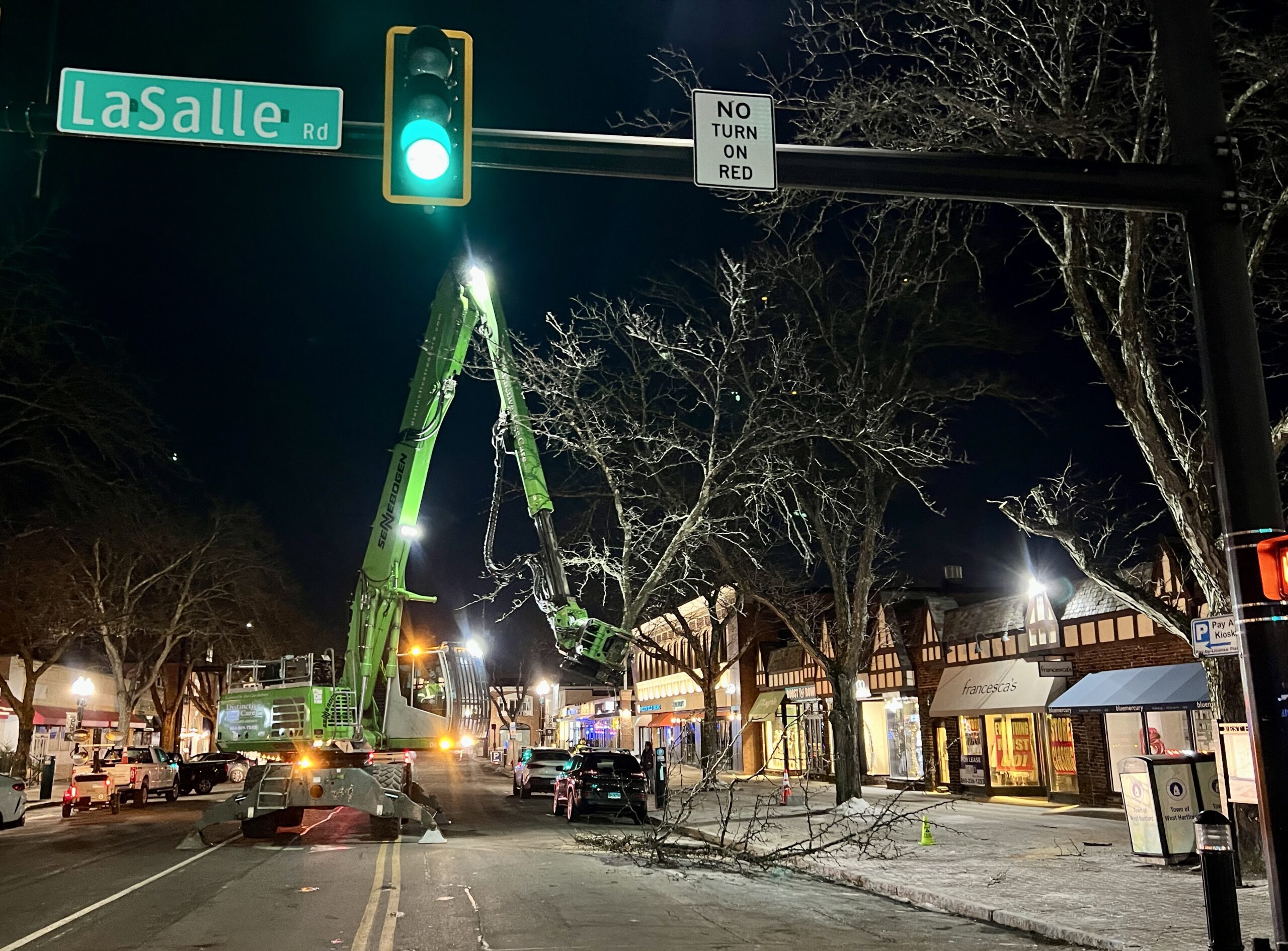West Hartford Center Infrastructure Plan Remains Under Review

Audio By Carbonatix
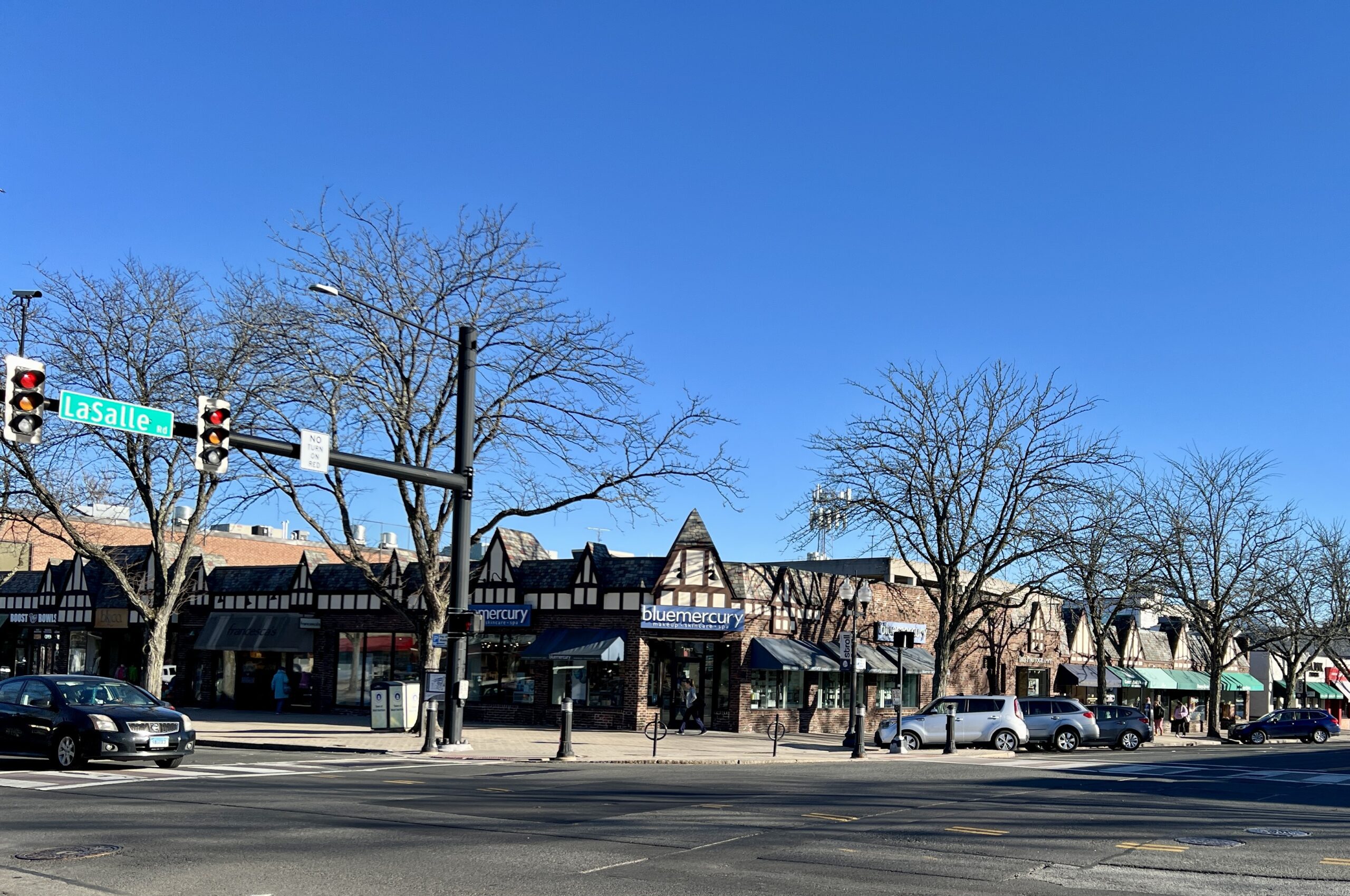
Intersection of LaSalle Road and Farmington Avenue in West Hartford Center. Photo credit: Ronni Newton (we-ha.com file photo)
The Town of West Hartford has been working with its consultant, Stantec, on concept plans for the updating of sidewalks and other infrastructure in West Hartford Center.
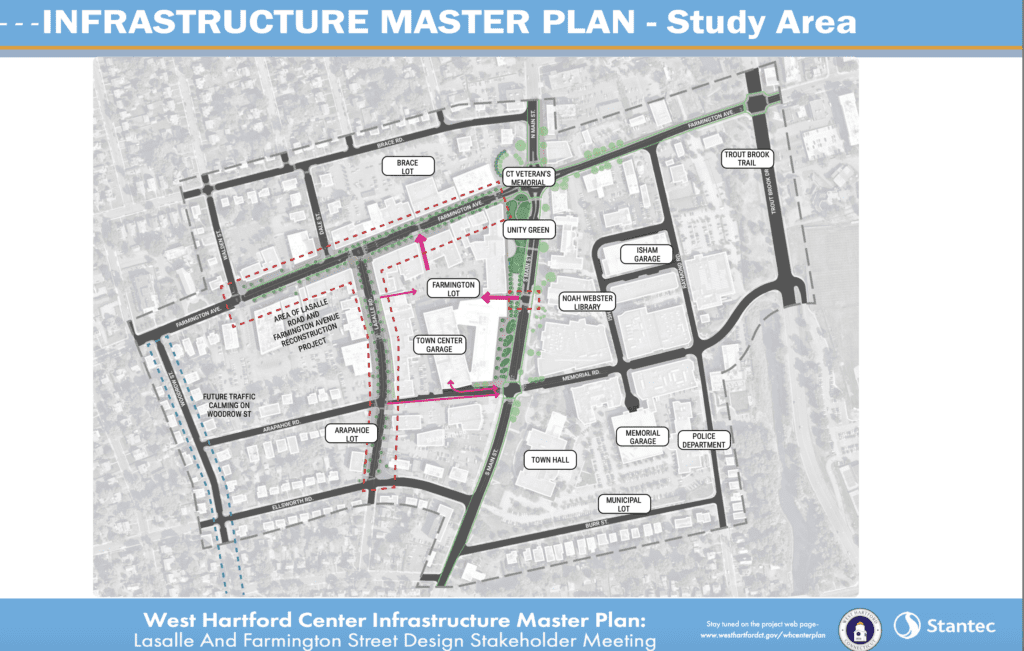
West Hartford Center Infrastructure Master Plan project area. Screenshot from Town of West Hartford website
By Ronni Newton
A plan to improve roadways, sidewalks, and other infrastructure in West Hartford Center and the surrounding area has been under discussion for several years, driven by not only much-needed repaving of LaSalle Road and Farmington Avenue and the need to fix sidewalks and replace damaged landscaping, but also to utilize funds available to the town under the American Rescue Plan Act (ARPA) to not just repair but upgrade with a holistic approach that includes enhancements and safety improvements.
A final decision on how the town will move forward with infrastructure updates has not yet been made, and according to Town Manager Rick Ledwith the options remain under careful consideration. He told We-Ha.com that the West Hartford Infrastructure Master Plan is not on the agenda for the Town Council’s Community Planning and Economic Development (CPED) Committee meeting scheduled for June 18.
The West Hartford Center Infrastructure Master Plan has been through several phases of development and consideration, and the most recent roll-out – presented during morning and evening public information meetings held on April 8 – outlined a hybrid approach for the reconstruction of Farmington Avenue and LaSalle Road that Ledwith said was “not quite as aggressive as we saw in the fall,” but at the same time provides for wider sidewalks and enhances accessibility and pedestrian safety. The intent stated at the meeting is also for construction to be phased into chunks as small as possible, to minimize disruption to businesses.
When a previous public information meeting was held in November 2023, multiple aspects of a West Hartford Center Infrastructure Master Plan were unveiled to an audience consisting mostly of West Hartford Center businesses and property owners, and those plans were not well received. The plans presented in November – now referred to as “Plan A” – call for an extensive change to parking and sidewalks with a protected bike lane on both sides of Farmington Avenue.
Following that November session, a letter was also sent to the Town Council by West Hartford Center businesses and property owners. Primary concerns raised at the Nov. 6 meeting and in a letter sent to the Town Council – sidewalk design, parking arrangement, and construction timeline – were heard, and various alternative options were then presented at a public meeting on Feb. 7, 2024.
Additional input was sought from the community at that February meeting, as well as through an online survey that had about 1,500 responses.
Following further consideration, the result was the hybrid plan presented in April, a plan that would improve the current infrastructure but maintain parking spaces, including angled parking, with sidewalks that are roughly 5 feet wider than they are now.
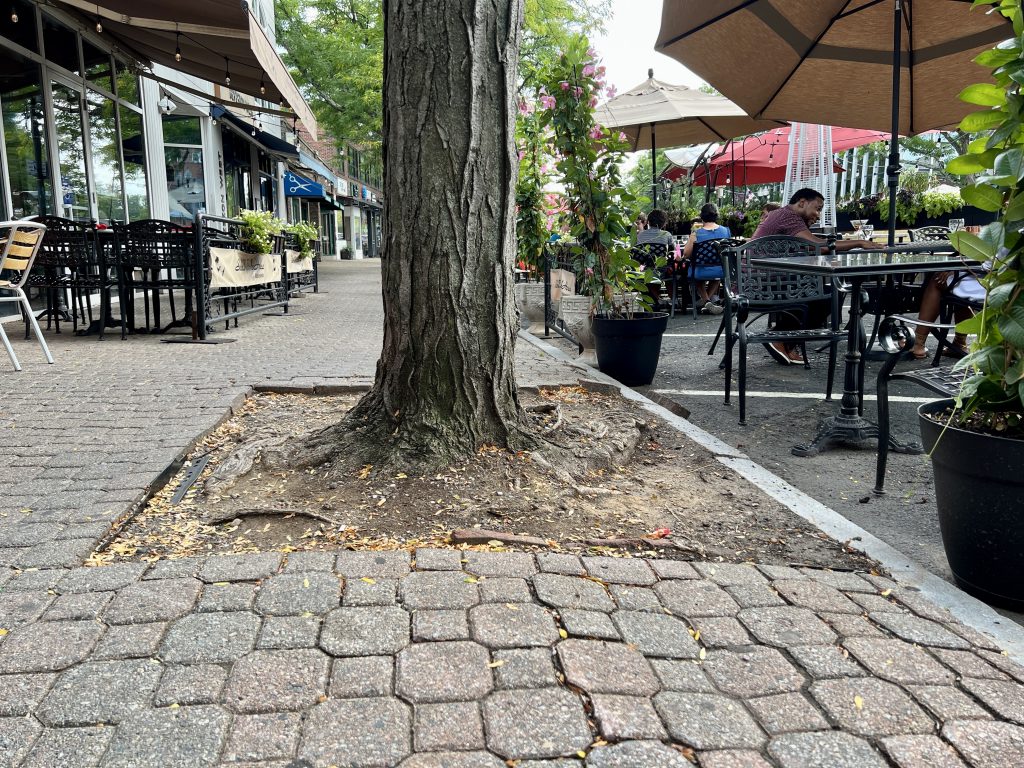
Existing sidewalks in West Hartford Center are extremely narrow in certain areas, and tree roots are protruding and also pushing up sidewalk pavers. Photo credit: Ronni Newton (we-ha.com file photo)
The West Hartford Chamber of Commerce emailed a letter, under the signature of Board Vice President Chuck Coursey, to West Hartford Center stakeholders this week. The letter stated that the Chamber “supports our local merchants and since last November has been working with town officials to address merchant concerns and work toward a plan for a safe, pedestrian friendly Center with strong, thriving local businesses.”
Merchants are supportive of a plan to “repair sidewalks, lighting and landscaping in a phased manner with minimal impacts to their business operations,” the Chamber’s letter states, and notes that the concerns raised in November – which included business disruption, loss of parking for customers, and the impact on traffic flow and public safety due to the narrowing of travel lanes – were heard, with the result being the hybrid plan presented in April.
In April, the Chamber’s letter states, ” … we felt that the infrastructure process had reached a point that merchants could support. While this plan was more disruptive than the renovate-and-repair plan that merchants preferred, it was less disruptive than the options previously offered by the Town. Like any good compromise, no stakeholder group got everything they desired.”
The letter asks merchants and business owners to reach out to Town Council members as well as the town manager and town clerk, because, the letter states, the Council may not be in support of the hybrid plan.
“Our local Center merchants borrow money, lease properties (often with personal guarantees), pay property taxes and create hundreds of local jobs. It is these merchants who bear the risks of any intended or unintended consequences of renovations,” the emailed letter from the Chamber to West Hartford Center stakeholders states. “While bigger businesses may survive disruption better than smaller ones, the Center is special because so many of its businesses are local. No one wants Center construction to weed out local businesses, only to be replaced with national chains that would make the Center look like any other town.”
There has also been advocacy by those who support a plan for more extensive changes that they say will position the Center for the next generation by making it more pedestrian-friendly and a model for the future while also supporting local retailers. Resident Jason Wang, now a member of the nonprofit group Bike West Hartford, outlined many of the issues in support of taking a more visionary approach in an editorial published by We-Ha.com last month.
The decision is ultimately up to Ledwith, but the Town Council will also be weighing in as policymakers. He told We-Ha.com that if any decision strays too far from the options already presented – either Plan A or the hybrid approach – there will be additional outreach to the public in advance.
The Council will also need to appropriate the ARPA funds for the project.
There is some time remaining before the final plan needs to be approved, but ARPA plans do need to be appropriated to the project by Dec, 31, 2024, Ledwith told We-Ha.com.
At the public information meeting in April, the overall cost of implementing the hybrid plan was estimated at $10.4 million, with $4.6 million estimated for LaSalle Road and $5.8 million estimated for the work on Farmington Avenue. In February, the estimate for implementing Plan A was roughly $15 million. The town had planned to completely fund the infrastructure improvements with ARPA funds, but Plan A may exceed the amount of ARAP funds remaining.
Like what you see here? Click here to subscribe to We-Ha’s newsletter so you’ll always be in the know about what’s happening in West Hartford! Click the blue button below to become a supporter of We-Ha.com and our efforts to continue producing quality journalism.


